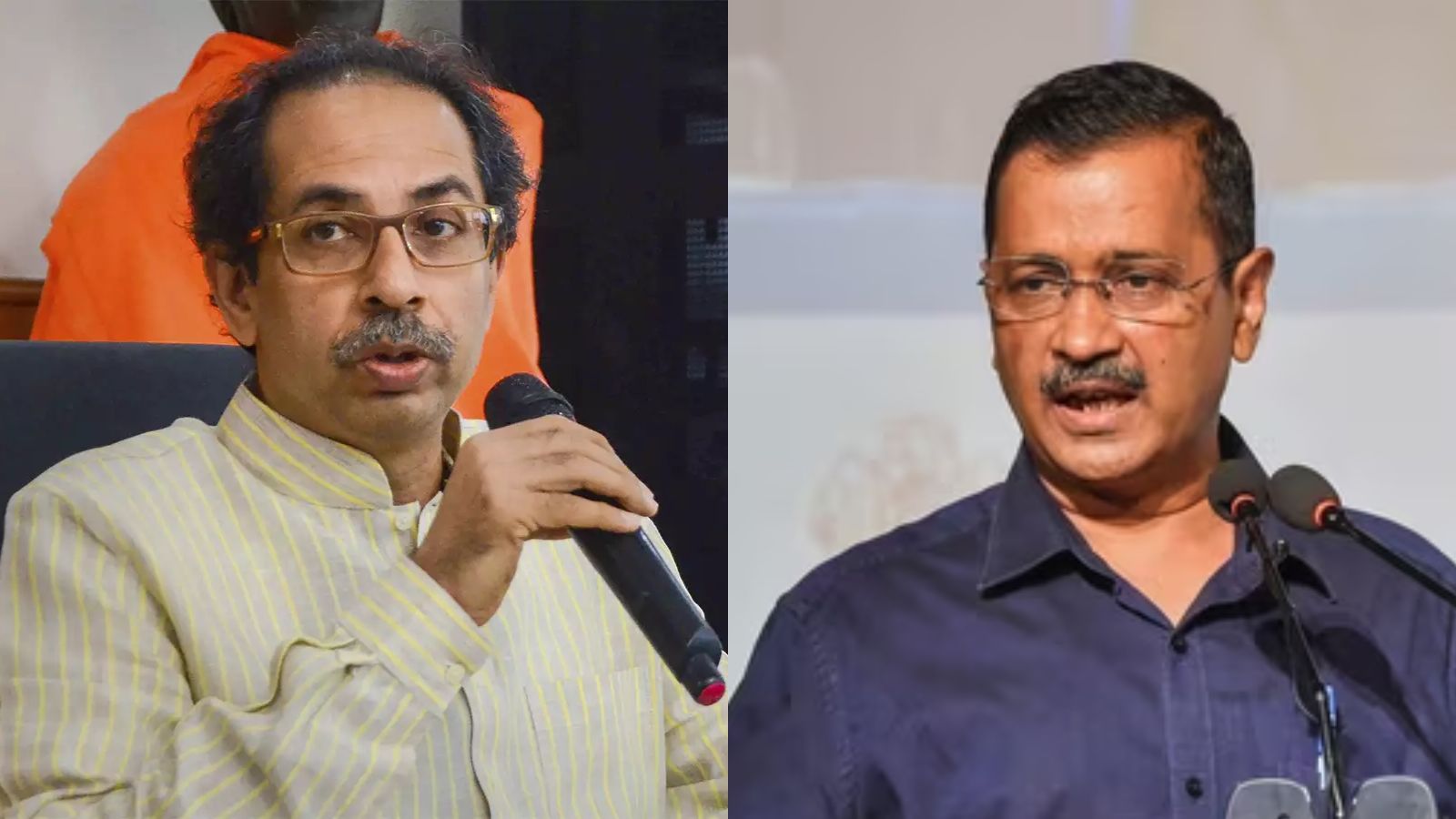 |
|
The Indian political landscape is currently witnessing a significant shift in alliances, particularly within the opposition INDIA bloc. The recent announcement by the Uddhav Thackeray-led Shiv Sena (UBT) to support Arvind Kejriwal's Aam Aadmi Party (AAP) in the upcoming Delhi Assembly elections has sent shockwaves through the established political order. This decision underscores a growing rift between the Shiv Sena (UBT) and its erstwhile ally, the Congress, highlighting the complex dynamics of coalition politics in India. The support for AAP, a fellow member of the INDIA alliance, directly contradicts the Congress's own participation in the Delhi elections and further complicates the already intricate relationships within the opposition front.
The rationale behind the Shiv Sena (UBT)'s decision appears rooted in reciprocal political support. Anil Desai, a Sena (UBT) MP, explicitly stated that the AAP's support for the Sena during the Maharashtra Assembly elections motivated this decision. This exchange of political favors highlights a pragmatic approach to electoral strategy, prioritizing immediate gains over long-term ideological alliances. While both parties are part of the larger INDIA bloc, designed for the upcoming national Lok Sabha elections, the decision to back AAP in the Delhi elections demonstrates a willingness to prioritize regional tactical advantages over broader, national-level opposition unity.
This move is not an isolated incident. Both the Trinamool Congress and the Samajwadi Party, also members of the INDIA bloc, have previously announced their support for the AAP in the Delhi polls. This pattern suggests a growing recognition of AAP's significant strength in Delhi, where they are widely expected to secure a substantial victory. The Shiv Sena (UBT)'s acknowledgement of this reality underscores a strategic calculus that prioritizes backing a likely winner, irrespective of the broader opposition alliance strategy. This tactical approach reflects a certain level of pragmatism and a willingness to navigate the complexities of multi-party coalition politics.
However, the Sena (UBT)'s decision has not been without criticism. Senior Congress leaders have expressed their displeasure, further exacerbating the existing tensions between the two parties. The Congress, which is actively contesting the Delhi elections, views the Sena (UBT)'s support for AAP as a betrayal of the opposition alliance's supposed unity. This conflict highlights the underlying challenges inherent in maintaining a cohesive opposition bloc in the face of competing regional and national interests. The contrasting views on the nature of the INDIA bloc – whether it should be considered an alliance in all elections or only for the Lok Sabha elections – further complicates this internal conflict.
Furthermore, the timing of the Shiv Sena (UBT)'s announcement is significant. The upcoming Brihanmumbai Municipal Corporation (BMC) elections are looming, and the party is reportedly keen to contest them solo. This suggests a possible strategic calculation to distance itself from the Congress, whose influence in Maharashtra might be perceived as hindering the Sena (UBT)'s electoral prospects in the BMC polls. The decision to support AAP might be seen as a way to leverage goodwill with other parties, potentially creating future alliances that benefit the Sena (UBT)'s standalone ambitions. The party's desire for independence in the BMC elections highlights a deeper narrative of political self-preservation and ambition.
In conclusion, the Shiv Sena (UBT)'s support for the AAP in the Delhi elections represents a significant development in Indian politics. It underscores the fluid and often opportunistic nature of coalition politics, where regional interests and tactical advantages frequently overshadow broader alliances. The decision reflects a growing rift within the INDIA bloc and raises questions about the long-term sustainability of the opposition alliance. The implications extend beyond the Delhi elections, potentially impacting future electoral strategies and alliance formations across various states. The pragmatic approach adopted by the Shiv Sena (UBT) points towards a future where political affiliations might be more fluid and determined by immediate electoral gains rather than long-standing ideological commitments. This shift is reshaping the political dynamics in India and will likely continue to impact the electoral landscape in the coming years.
Source: After TMC and Samajwadi Party, Sena (UBT) backs AAP in Delhi polls
